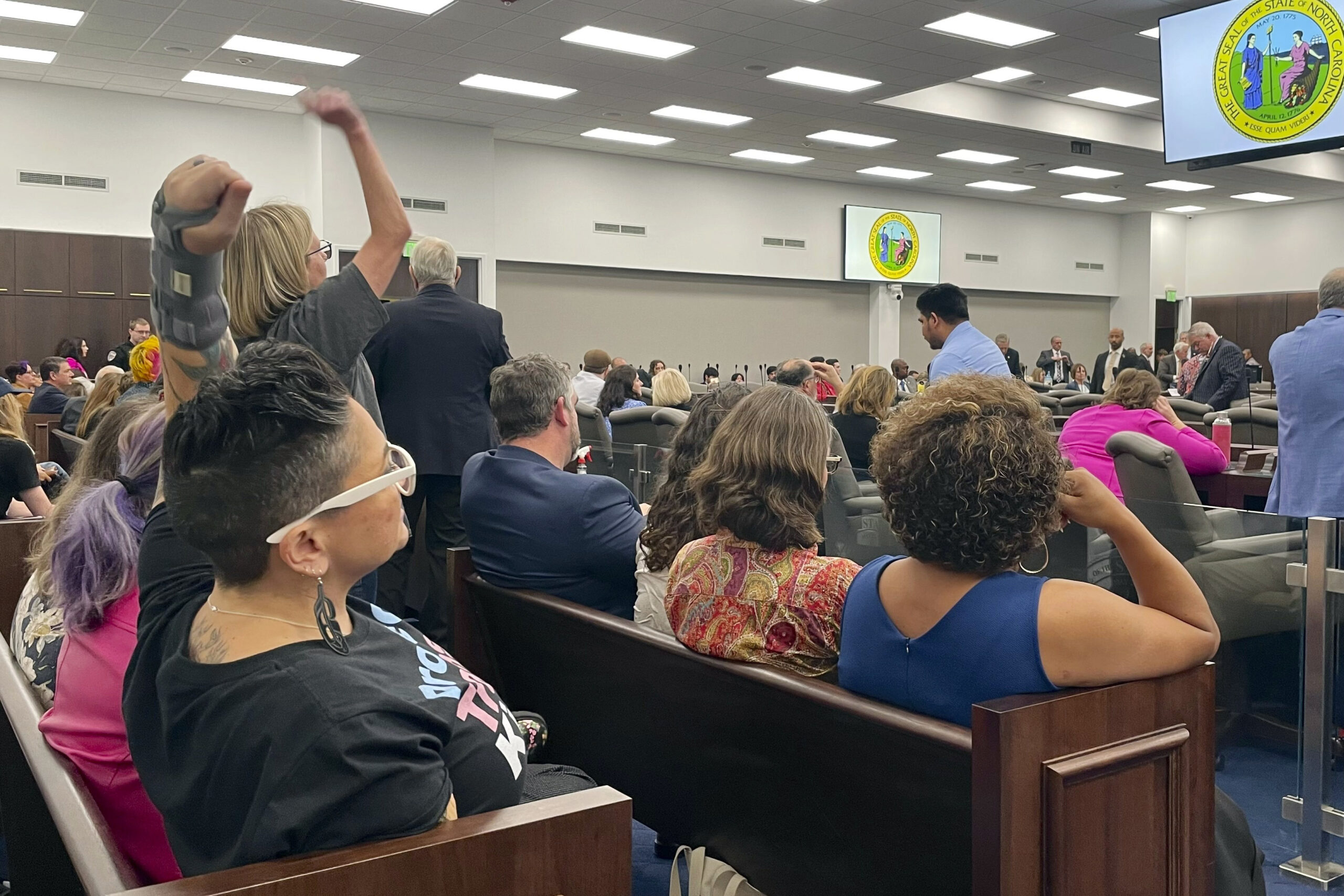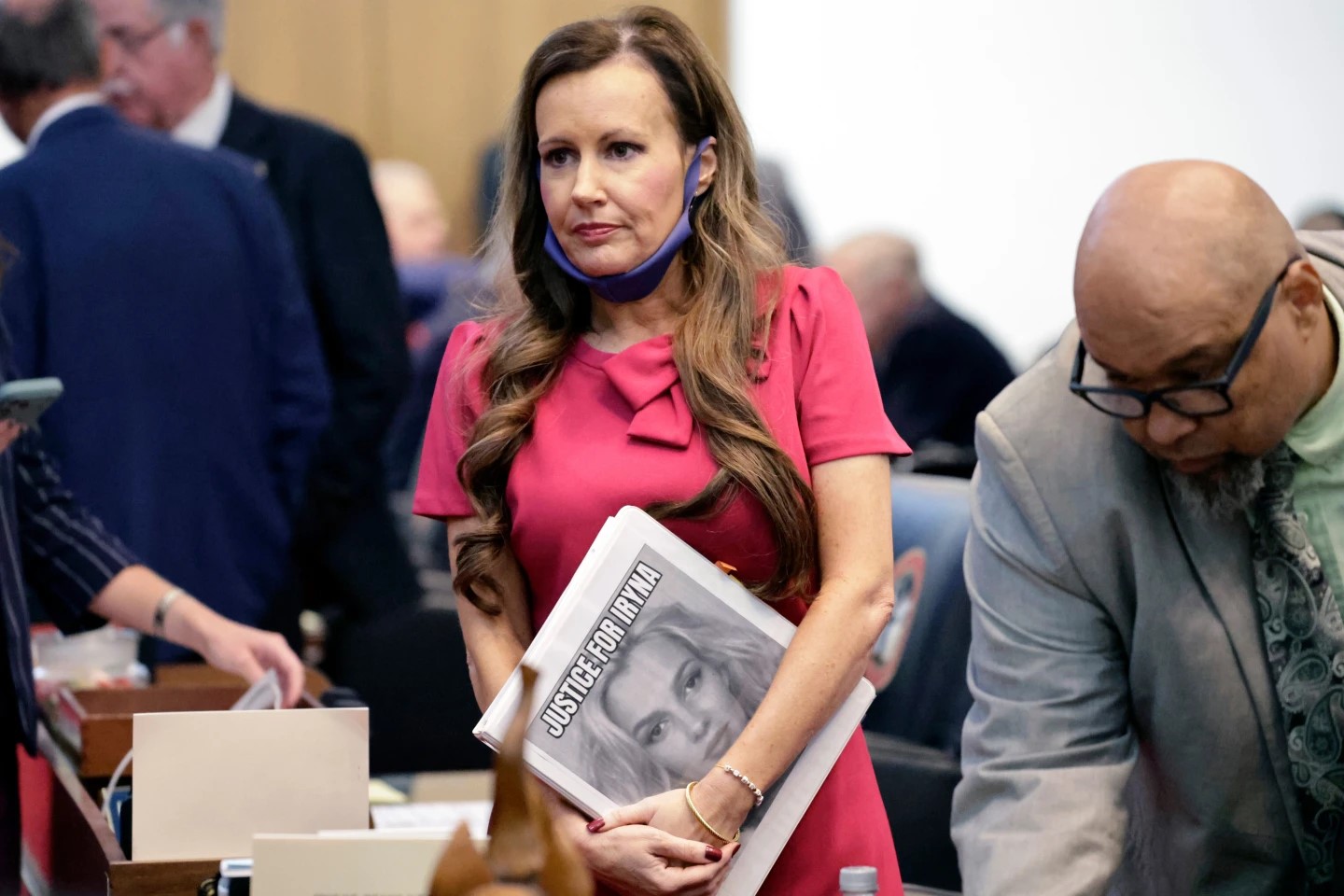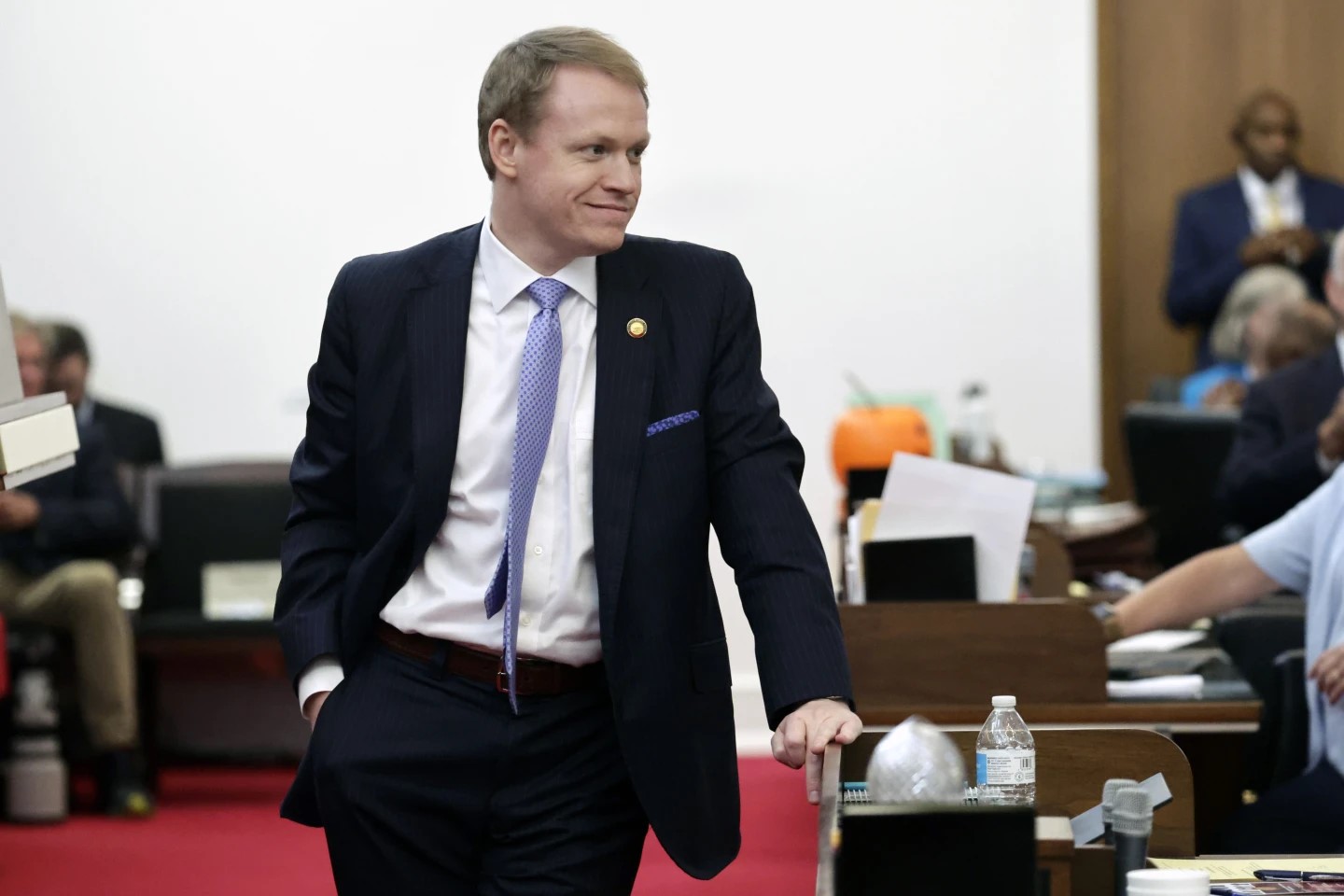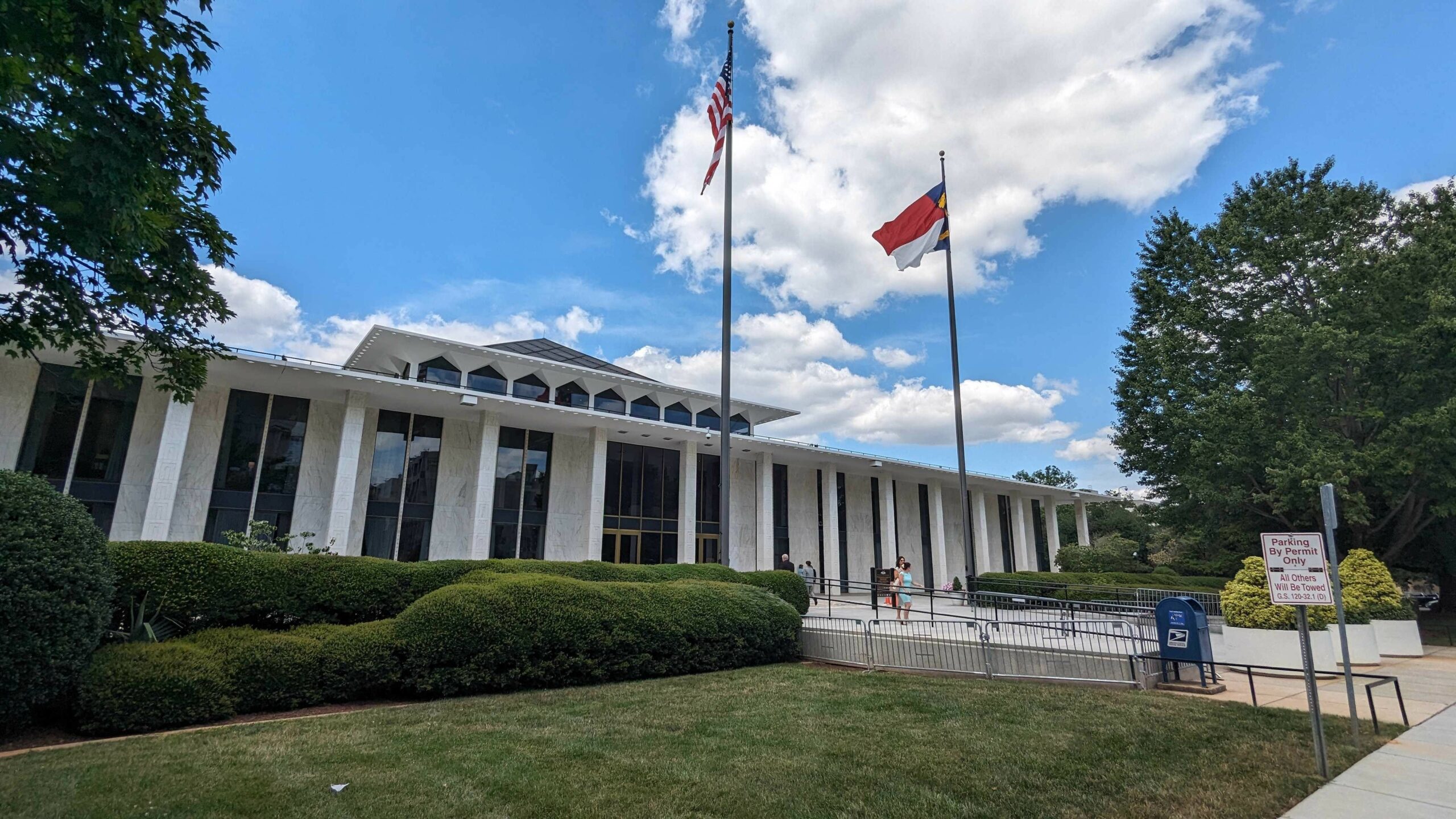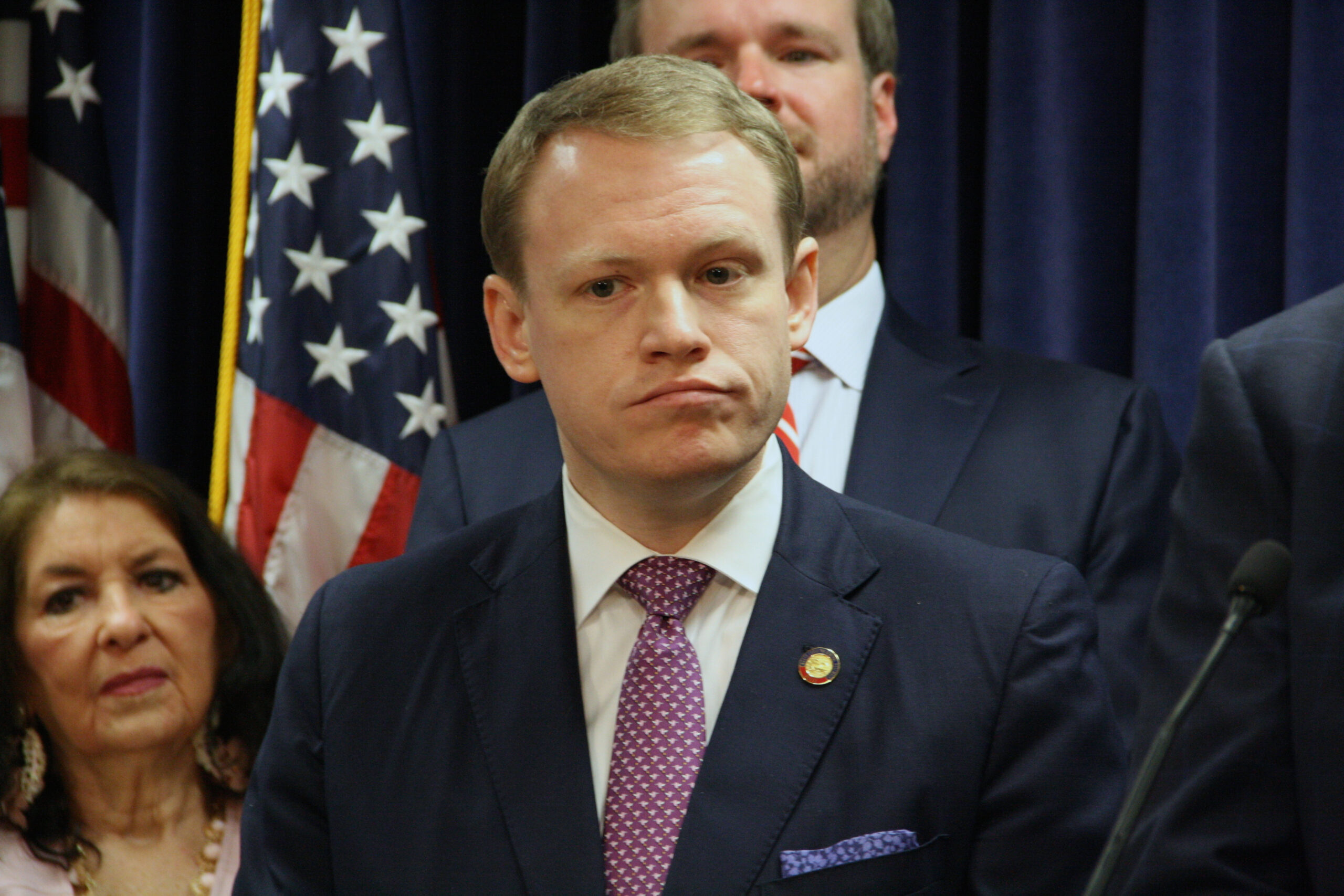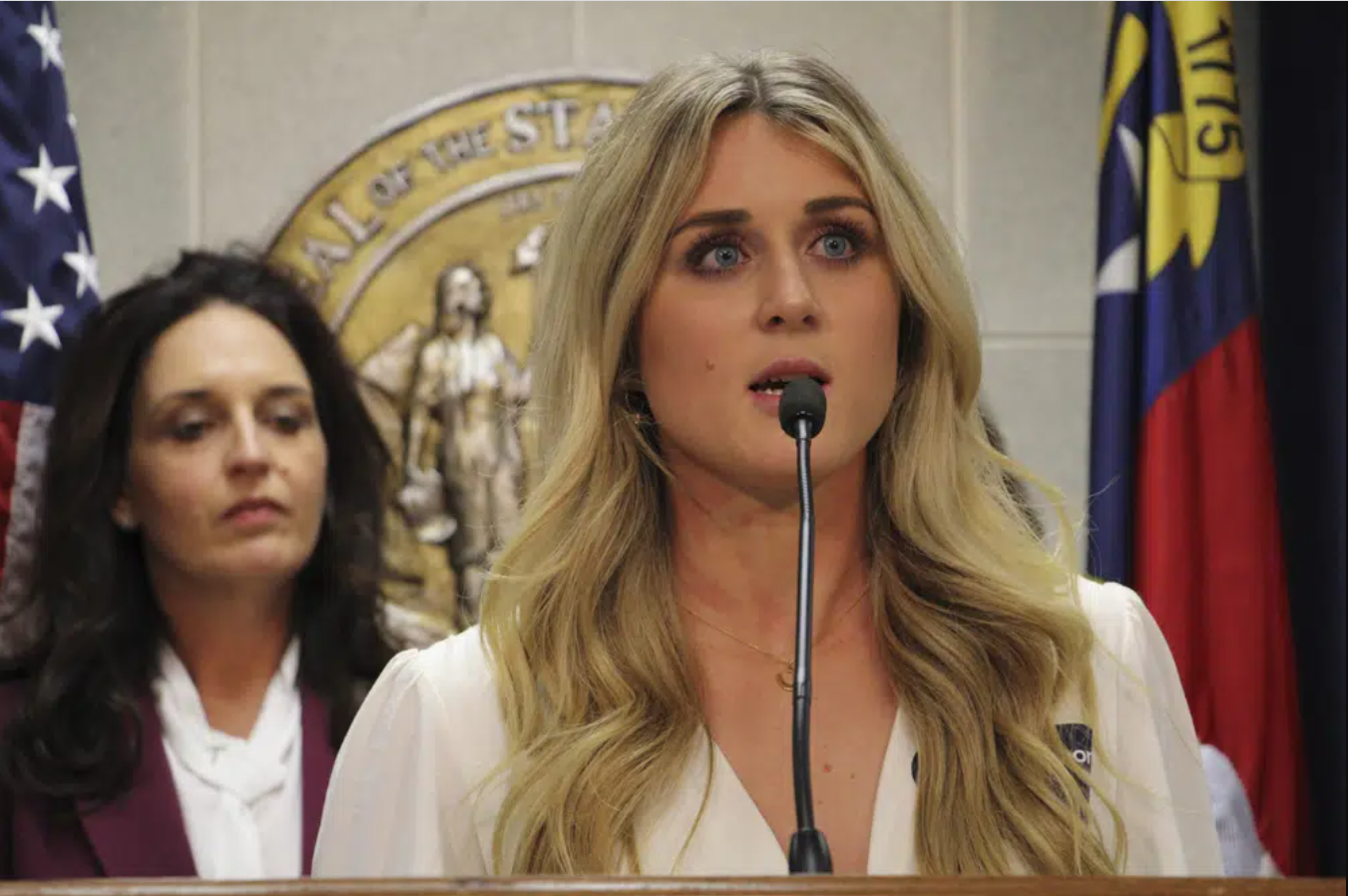
Transgender girls in North Carolina would be prohibited from joining female sports teams in middle school, high school and college under legislation passed Wednesday by the Republican-controlled House in one of its first actions since attaining a supermajority earlier this month.
The House approved legislation 73-39, with three Democrats voting in favor, to separate sports by biological sex, based solely on students’ “reproductive biology and genetics at birth.” Trans girls would not be allowed to play on any sports team that corresponds with their gender identity. Trans boys and cisgender girls could only play on teams designated for male athletes if there was no comparable girls’ team, except for wrestling.
House Republicans fast-tracked the bill through two committees earlier Wednesday after hearing debate from trans and cisgender student athletes. It now heads to the Senate, where a competing proposal could reach the floor as soon as Thursday. The Senate bill would only create restrictions for middle and high school athletes.
At least 20 other states have imposed similar limits on trans athletes at the K-12 or collegiate level. The North Carolina bills are among several introduced this month that would impact trans residents, including restrictions on gender-affirming medical procedures for trans youth and criminal penalties for public performances by some “male or female impersonators.”
Proponents of the House sports bill argue it would preserve opportunities for cisgender girls and protect their safety. But trans kids and their supporters say it’s discrimination disguised as a safety precaution.
“This bill is a bill to be inclusive, not to be exclusive,” said Rep. Kristin Baker, a Cabarrus County Republican and primary sponsor. “This bill is to allow fair and particularly safe, physically safe, competition.”
While sponsors contend the proposal would not permit genital inspections to verify a student’s sex, they did not have an explanation Wednesday for how the policy would be enforced.
The bill also would give students a right to sue if they’re harmed by a trans student violating the restrictions.
Baker and other supporters have repeatedly pointed to a volleyball injury in Cherokee County as justification for their claim that trans participation poses an inherent danger to cisgender girls in the state.
Payton McNabb, a senior at Hiwassee Dam High School in Murphy, suffered a concussion and neck injury after a transgender athlete hit her in the head with a volleyball during a school match last September. McNabb said she still suffers from impaired vision, learning challenges, chronic headaches and partial paralysis on her right side.
“I may be the first to come before you with an injury, but if this doesn’t pass, I won’t be the last,” she said in a committee meeting earlier Wednesday.
The debate drew national advocates like Riley Gaines, a former University of Kentucky swimmer known for criticizing an NCAA decision allowing transgender swimmer Lia Thomas to compete against her in Division I women’s races.
Rep. Vernetta Alston, a Durham County Democrat, criticized the GOP for amplifying a few isolated incidents she said blow the problem out of proportion. Injuries happen all the time in sports, Alston said, regardless of who’s participating. Baker argued an injury like McNabb’s is one too many.
No more than 15 trans athletes have been approved to play high school sports this year in North Carolina, and only two are trans girls.
“It is a pretext for bigotry and part of a larger effort to ban transgender people from living their lives,” Alston said during floor debate, warning that the bill would further exclude a small and already vulnerable population.
Sean Radek, a transgender 17-year-old from Charlotte, said he gave up his greatest passion — swimming — due to the discrimination and discomfort he faced after coming out as a preteen. The isolation he felt after leaving the sport still affects him today, he said.
“Since then, I struggled with depression, self harm and suicidal ideation due to a loss of community, especially when it came to sports,” Radek said. “It’s hard to imagine a 12-year-old giving up his dreams because he found himself … for me, this was reality.”
Mecklenburg County Rep. Tricia Cotham, who gave the GOP a veto-proof supermajority this month when she changed her party affiliation from Democrat to Republican, voted in favor of the bill after she ran last fall on a platform supporting LGBTQ+ rights. Cotham declined to speak to reporters about the bill Wednesday.
Featured image via Associated Press/Hannah Schoenbaum
Chapelboro.com does not charge subscription fees, and you can directly support our efforts in local journalism here. Want more of what you see on Chapelboro? Let us bring free local news and community information to you by signing up for our biweekly newsletter.


